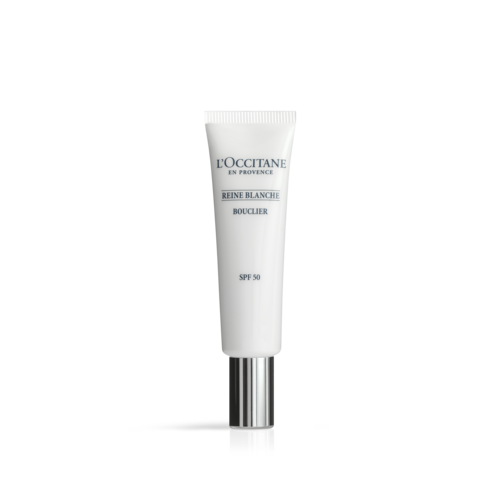Best Sunscreen for Acne-Prone Skin, So Your Face Won't be Oily and Glowing!

Sunlight is indeed known to have benefits for the body. However, this only works at certain times, such as in the morning.
If you are exposed to sunlight for too long outside of these times, you probably feel the negative effects of UV rays more than the benefits. Especially for those with acne-prone skin. Sun exposure can make acne scars darken or cause dark spots to appear.
That's why using sunscreen is important. Sunscreen can help protect the skin from damage caused by UV rays. However, choosing sunscreen for acne-prone skin can often be a challenge.
Well, L'Occitane has the solution for you! Here are tips for choosing sunscreen for acne-prone skin.
Tips for Choosing Sunscreen for Acne-Prone Skin
1. Choose Hybrid Sunscreen
Hybrid sunscreen is a combination of physical and chemical sunscreen technologies. This sunscreen utilizes the lightweight composition of chemical sunscreen and certain ingredients such as titanium dioxide from physical sunscreen. This sunscreen is suitable for sensitive and acne-prone skin.
Read Also: Sunscreen Benefits for Skin Health
2. Avoid Sticky and Heavy Textured Sunscreen
Sunscreen with a lightweight texture is more suitable for acne-prone skin. Sunscreen with a heavy texture tends to have the potential to clog pores, making it prone to causing new acne.
3. Oil-Free Formula
It is very important for those with acne-prone skin to choose a sunscreen with an oil-free formula. This is to avoid excess oil production which could potentially cause new acne to appear.
Read Also: Sunscreen for Oily Skin
4. Non-Comedogenic Formula
Non-comedogenic formula is gentle for acne-prone skin. Sunscreen with a non-comedogenic formula will not cause pore blockages, thus preventing the appearance of blackheads and acne.
5. Choose Easy to Clean Sunscreen
Sunscreen that is not easy to clean will leave product residue and accumulate on the skin surface. This potentially clogs pores. So, choose products that are easy to clean to prevent new acne from appearing due to clogged pores.
Read Also: Sunscreen for Dry Skin
6. Check Sunscreen Composition
Before deciding to choose sunscreen, check the sunscreen composition usually located on the back of the product. Consider the compositions or formulas mentioned above.
7. Choose SPF 30 or Above
SPF (sun protection factor) is the sunscreen's ability to protect the skin from UV ray exposure. The higher the SPF, the more maximum the skin protection against UV ray exposure. Therefore, choose sunscreen with SPF above 30 or at least 30.
Read Also: Sunscreen for Premature Aging
Best Sunscreen Recommendations for Acne-Prone Skin
The main factor in acne formation is the clogging of the pilosebaceous pores and excessive oil production. You need a sunscreen product with a lightweight texture to prevent pore blockage, such as L'Occitane Reine Blanche - Illuminating UV Shield SPF50.
This UV Shield is equipped with SPF 50 which can help protect the skin from UV ray exposure maximally. The skin will be protected for over 500 minutes or up to 8 hours.
Reine des Prés contained in Reine Blanche - Illuminating UV Shield SPF50 can help brighten the skin. The natural salicylic acid content in the flower is known to enhance radiance and help epidermal renewal.
Besides protecting from skin damage caused by UV ray exposure, your skin will also become brighter after using Reine Blanche - Illuminating UV Shield SPF50 regularly.
Read Also: Sunscreen for Combination Skin
Those are tips for choosing sunscreen for acne-prone skin that might be beneficial for you. Hopefully, this article helps you find the right sunscreen!



